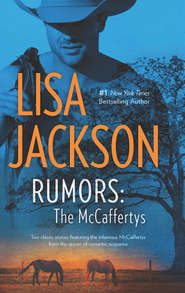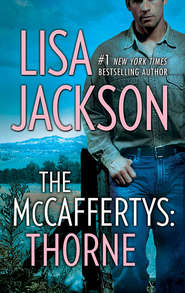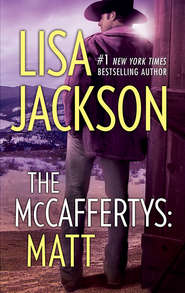По всем вопросам обращайтесь на: info@litportal.ru
(©) 2003-2025.
✖
Confessions: He's The Rich Boy / He's My Soldier Boy
Автор
Год написания книги
2018
Настройки чтения
Размер шрифта
Высота строк
Поля
“Tom owns a considerable amount of shares. Meanwhile the employees will want to keep getting paid and, unless you want to close the doors and put those people on the unemployment rolls, Monroe Sawmill Company will keep turning out thousands of board feet of lumber from the mills.”
Hayden’s back teeth ground together. Even from the grave, the old man seemed to have him over a barrel. Hayden didn’t have much love for Gold Creek, where the oldest and largest of the mills was located, but he didn’t hate the people who lived there. Some of them were good, salt-of-the-earth types who’d worked for the corporation for years. Thrown out of work, they’d have no place to turn. A fifty-five-year-old millwright couldn’t be expected to go back to school for vocational training. The whole damned town depended upon that mill one way or another. Even the people who worked at Fitzpatrick Logging Company needed a sawmill where they could sell the cut timber. The banks, the shops, the cafés, the taverns, even the churches depended upon the mill to keep the economy of that small town afloat. It was the same with the other small towns around the smaller mills he now owned.
With the feeling that he was slowly drowning, Hayden said, “Look, Bradworth, I know about selling companies. I just got rid of a logging operation in Klamath Falls, Oregon. So there must be some way to get rid of the mills around Gold Creek.”
The attorney drew back his lips in what Hayden surmised was supposed to be a smile. “Your Podunk logging operation in Klamath Falls—what did it consist of? A few trucks, maybe a mill or two and some timber? Handling a small-time business is a lot different than running an operation the size of Monroe Sawmill, son.”
“Doesn’t matter. I just don’t want it. I don’t care if I ever see a dime of the old man’s money.”
Bradworth’s eyebrows raised a fraction. “So you want to donate the corporation, lock, stock, barrel and green chain to—whom? The homeless? The Cancer Society? Needy children?”
Hayden’s lips flattened against his teeth. “That’s a start.”
“How?”
“You’re the attorney—”
“Right. So that’s why I’m telling you. We can’t go out and donate a wood chipper to the Salvation Army. You know, most people would jump at a chance to own a company like this.”
“I’m not most people.”
“Obviously.” Bradworth’s gaze raked down Hayden’s body, taking quick appraisal of his soggy jeans, flannel shirt and battered running shoes. His wet jacket had been cast casually over the back of one of the attorney’s stuffed leather chairs. Water dripped onto the expensive burgundy-hued carpet. “As for the charitable organization of your choice, I’m sure the board of directors would be more than happy to take your money—but not in the form of the corporation, so you can sell Monroe Sawmill Company to a rival firm, if there is one that wants it, or raffle it off piece by piece to some corporate raider who’ll close up shop and put the employees out of work. Your choice. But for the time being, you are, whether you like it or not, the majority stockholder and CEO of the firm, and the next board meeting is scheduled for January 15.” Bradworth glanced meaningfully at his desk calendar. “That’s barely two months away. I doubt that anyone will buy the company from you by then.” He reached behind him, opened a sleek walnut credenza and pulled out several binders. “These,” he said with quiet authority, “are copies of the company books. I suggest you study them. As for the town house in the Heights, here are the keys, along with a key to the Mercedes, BMW and Ferrari. There’s also the summer place at—”
“Whitefire Lake,” Hayden supplied, thinking of the remote house on the shore, the only place he remembered from his youth with any fondness. He’d enjoyed his few years on the lake and the summers thereafter...until his entire life had been turned inside out. “I know.”
Bradworth’s lips pursed. “As for the money and company stock, it will just take some time to go through probate and transfer everything to you. I’ve already started putting things in order—some of the buildings need to be cleaned and repaired, leases need to be transferred. Some of the assets of the corporation are personal and—”
“I don’t give a damn!” Lead weight seemed to settle over Hayden’s broad shoulders. “This is ludicrous,” he remarked, though the attorney probably thought the same. It wasn’t a secret that Hayden and his father had never gotten along. But the old man insisted on cursing him, even from the ever-after.
“I couldn’t agree with you more,” Bradworth admitted as he shoved the will back across the desk. “But there it is. Now, how will I reach you?”
“You can’t. Just take care of everything ’til I get back.”
“But I’ll need to know where you are so I can keep in touch—”
“Don’t worry. I’ll call you.” Grabbing the damned documents, the notebooks and the keys, Hayden snagged his jacket with his other hand and strode over yards of expensive carpet to the door. He paused with his fingers resting lightly on the knob. “What’s going to happen to Wynona?” he asked, eyeing the attorney.
“Who?” But the lawyer’s face tightened spasmodically and Hayden’s stomach turned sour.
“Wynona Galveston,” Hayden replied without a trace of bitterness.
“I don’t know who—”
“Save it, Bradworth. Just let her know the old man’s gone. She’ll be interested.”
Bradworth cleared his throat. “She’s been provided for—”
“Bought off, you mean. Like all the rest.” Casting a disgusted glance over his shoulder, he added, “Dear old dad left a helluva mess, didn’t he?” Without waiting for a reply, he strode through the door, slammed it shut behind him, and walked quickly through the maze of corridors lighted by recessed bulbs. At each intersection in the labyrinthine hallways, original paintings and sketches in pastoral country scenes graced the walls. The whole effect was reminiscent of an Englishman’s club. Brass lamps and oxblood leather chairs, mahogany tables strewn with copies of Forbes, GQ, and the like were grouped in intimate circles in the reception area, decorated much as Hayden remembered his father’s den. All that was missing was the old man himself and the ever-present, sweet smoky scent of his father’s private blend of pipe tobacco.
Strange that he should feel a sense of nostalgia for a man he’d grown up hating. Shoving his arms through the sleeves of his jacket, he rode the elevator to the parking garage where his old Jeep stood waiting. Leo’s tail thumped against the backseat as Hayden slid behind the wheel. The dog tried to scramble into the front seat, but Hayden ordered him to stay, and Leo, with a sniff, settled down, head between his legs, liquid-brown eyes staring straight at Hayden. “We’re going on a vacation,” Hayden told the dog as he glanced in the rearview mirror and fired the engine.
Backing the Jeep out of its parking place, he maneuvered through the garage and into the drizzly light of a wintry San Francisco afternoon. The wet streets were crowded with bustling cars and pedestrians. Holiday lights blinked red and green in the windows of major department stores and bell-ringers stood near the doorways, asking for donations for the needy this holiday season. Slowly traffic inched out of the city. “Whitefire Lake,” Hayden said, catching Leo’s reflection in the rearview mirror. “Believe me, you’re gonna love it there.” As if the dog could understand him! God, he was losing it.
Frowning at the reminder of the small town, he flipped on the radio. He’s spent most of his summers at the lake hanging out with his cousins, Roy, Brian and Toni Fitzpatrick. Roy was dead now and Brian’s wife had finally proved to be Roy’s killer. Hayden scowled. Nope—not many fond memories in Gold Creek.
There had been a girl once. Nadine Powell. She’d been different—or so he’d thought. She’d turned his thinking all around until, like the others, she’d shown her true colors and when offered money to stay away from Garreth’s son, she’d eagerly reached out her greedy little fingers.
He grimaced at the thought of her hands and the way they had touched his body. Good God, he’d almost seduced her a couple of times. No doubt that had been what she’d been hoping for. When he thought of the way she could turn him on...
“Hell!” He ground the gears and the Jeep slid a little. The familiar notes of “Santa Claus Is Coming to Town” filled the vehicle’s interior. Hayden turned the radio dial to an all-news station. He didn’t want any reminders of the holiday season as his memories of Christmas were tangled up in emotions he didn’t want to dissect.
Though Garreth had proclaimed Christmas as the one time the family was to spend together, he had, often as not, shown up hours late to a goose that was cold and to barely flickering candles that had burned down to stubs of dripped wax.
Even as the spoiled son of Garreth Monroe, Hayden hadn’t wanted to become a man like his father. Though his name promised the same wealth and financial wizardry as that of his predecessors, Hayden had no interest in making money. Hell, he’d already done that with the lousy mill in Oregon.
Maybe, he thought, his mouth thinning in repressed anger, he should change his name. Wouldn’t that tick the old man off?
Except it didn’t matter now. Hayden alone was the sole survivor of the Monroe line—no brothers to carry on the tainted Monroe name. The H. G. Monroe lineage was destined to die with him because he’d sworn to himself over and over again, he’d never become another Monroe mogul.
He wouldn’t marry and he’d never father children. No one really gave a damn, anyway. He knew that he’d been conceived for the express purpose of carrying on the Monroe line and, had he been born a girl, his mother would have been pressed to produce a male child—an heir.
Female after female would have been born until a boy had finally come along. Fortunately for Sylvia Fitzpatrick Monroe, who really wasn’t all that interested in motherhood, she’d come through with a male. Saints be praised, the line would continue! Hayden could imagine the magnums of Dom Pérignon that had been uncorked when his father’s manhood had been proved and his son had been delivered into the world to preserve the family name.
What a joke, he thought, as the Jeep bucked up the steep hills of the city before merging onto the freeway heading north. He laid on the horn when an old white sedan tried to swerve into his lane ahead of him. “Idiot,” he muttered, and Leo snorted in agreement.
The windshield wipers slapped away the rain and the engine thrummed as Hayden shifted down. Cold air seeped in through the windows that didn’t quite close, and rain drizzled down the inside of the glass. Hayden barely noticed. He wasn’t about to return to his father’s house and take the damned Ferrari.
“Damn you, Garreth,” he growled, as if his father could hear him. “Leave me alone.” The way you did when I was a kid.
If having a son were such a big deal, why hadn’t the old man taken any interest in him until he could read the market quotes in the Wall Street Journal?
“Bastard.” Hayden had grown up all alone, and that’s the way he planned to live the rest of his life. Alone.
He could think of worse company.
* * *
HANDS ON HER jean-clad hips, Nadine stood near her idling Chevy and stared at the fortress that protected the Monroe summer home. In all her thirty years—even in the few weeks when she’d been secretly seeing Hayden—she’d never walked through the sturdy wrought-iron gates that led to what was rumored to once have been the fanciest house on the lake, built by a movie star in the late twenties and purchased—or, more likely, stolen—by the thieving Monroe family in the fifties.
Her lips turned down at the corners as she eyed the rock wall that stretched around all fifteen acres of prime lakefront property. Only the uppermost branches of the tallest pines were visible over the eight feet of stacked basalt and mortar.
And now, she was allowed—as a servant, she reminded herself—access to the fabled estate. The code she’d been given by the hotshot attorney in San Francisco worked. She punched out the numbers on a keypad and electronically, with a loud clang and groan, the gates swung inward.
Ironic, she thought, that she should be here, called upon to clean up the old manor, get it ready for its new inhabitant. It seemed that the attorney who had hired her didn’t know about her connection to the Monroes. All the better.
She slid behind the wheel of her Nova and disengaged the emergency brake. The little car sprang forward, as if as eager as she to view the mansion owned by the man who had nearly single-handedly ruined her family.
The drive was overgrown with weeds, but still seemed inviting as it curved through a forest of sequoia, oak and pine. Pale winter sun streamed through the leafless branches and spattered the ground with pools of shimmering light.











